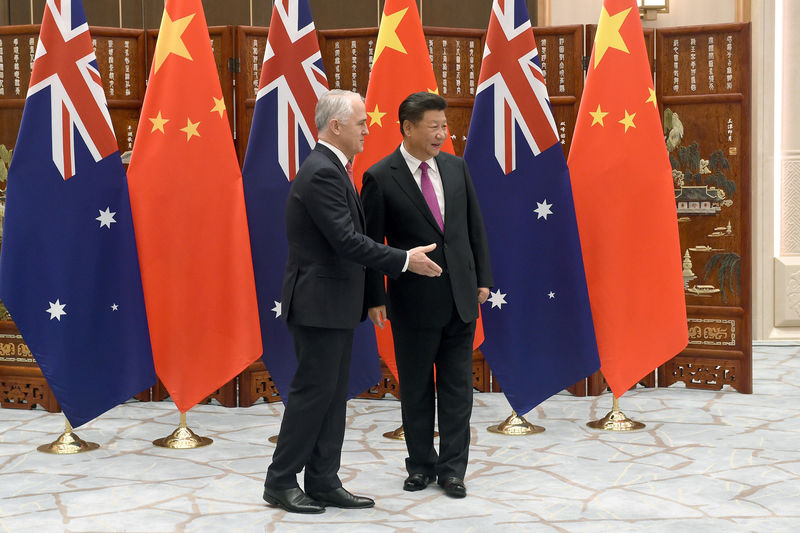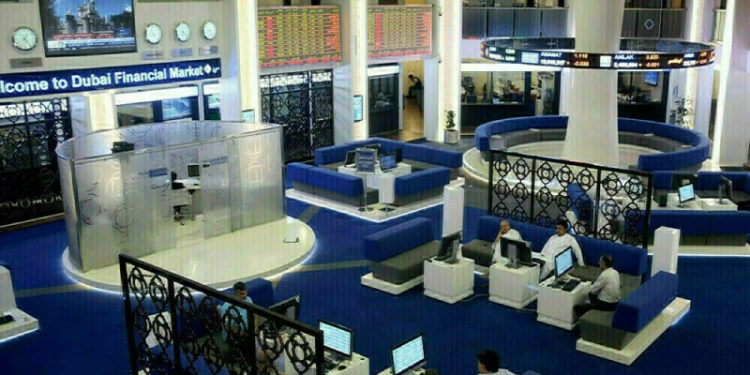 © Reuters. FILE PHOTO: Australia’s Prime Minister Malcolm Turnbull meets Chinese President Xi Jinping ahead of G20 Summit in Hangzhou
© Reuters. FILE PHOTO: Australia’s Prime Minister Malcolm Turnbull meets Chinese President Xi Jinping ahead of G20 Summit in HangzhouBy Colin Packham
SYDNEY (Reuters) – Australian Prime Minister Malcolm Turnbull acknowledged on Thursday that legislation aimed at preventing foreign interference in politics had soured ties with China, putting a biennial Australia-China trade fair in jeopardy.
Relations between Australia and its largest trading partner have been strained over the past year, partly over Australian concern about rising Chinese influence, which led to the introduction of legislation banning foreign political donations.
The Australian Financial Review, citing unidentified sources, said this week China had denied visas to Australian government officials to attend a major trade show, denting close economic ties between the two countries.
“There’s clearly been some tension in the relationship following the introduction of our legislation about foreign interference but I’m very confident that any misunderstandings will be resolved,” Turnbull told 3AW Radio in Melbourne.
“I wouldn’t say they’ve been declined,” Turnbull said of the visa applications, without elaborating.
The foreign ministry did not respond to emailed requests for comment.
Australia’s Trade Minister Steven Ciobo told Reuters discussions about rescheduling the event were underway.
However, a source with knowledge of the planning for the Australia Week trade event said it was unlikely the gathering, already pushed back from May to July, would go ahead at this late stage.
“There’s no way of knowing that things would change sufficiently for (Australia) Week to go ahead,” the source, who requested anonymity because he was not authorized to talk to the media, told Reuters.
Last month, Frances Adamson, Australia’s most senior civil servant the Department of Foreign Affairs and Trade said she was still trying to arrange an annual visit to China, some five months after Beijing said it was unable to accommodate her due to scheduling conflicts.
Late last year, Turnbull referred to “disturbing reports about Chinese influence” and warned of foreign powers’ “unprecedented and increasingly sophisticated attempts to influence the political process”.
The Australian legislation, which is expected to be passed soon, also requires the registration of lobbyists working for foreign countries.
China has previously expressed its displeasure at foreign governments through a range of responses. Last year, South Korean companies were effectively blocked from operating in China after Seoul agreed to install a U.S. anti-missile system that Beijing strongly objected to.
In 2016, nine Singaporean armored vehicles were seized in on their way home from military exercises in Taiwan, which China considers a wayward province.
The latest spat has weighed on Australia-China relations, which are now arguably at even a lower point than 2009, when Rio Tinto (LON:) executive Stern Hu was on trial, and subsequently jailed, in Shanghai on bribery and industrial espionage charges and when then Prime Minister Kevin Rudd gave an inflammatory speech in Beijing about human rights.
China bought A$93 billion ($70 billion) worth of Australian goods and services last year, but trade ties are only one side of a delicate balancing act for Australia, whose unshakeable security relationship with the United States has limited how close it gets with China.
Turnbull’s comments also come just a few days after he warned China against developing a military presence on the tiny Pacific Island of Vanuatu after reports by Australia’s Fairfax media.
Encouraged by the United States, Australia has sharpened its criticism of China’s activities in the Pacific and the South China Sea.
Australia’s International Development Minister Concetta Fierravanti-Wells in January accused China of funding “roads to nowhere” and “useless buildings” in the Pacific, amid fears Canberra’s historical dominance in the region was eroding.
Source: Investing.com



























